A Strong Defense of Barr
Jack Goldsmith pushed back on "over the top" reaction to the AG's handling of the Mueller report.
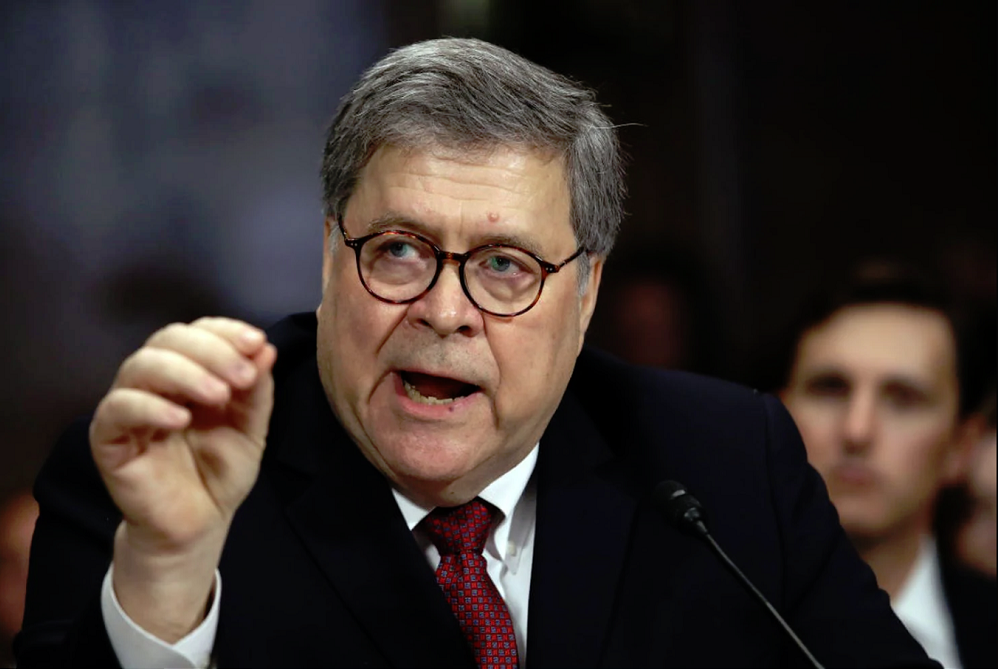
In recent weeks, we have offered some strong critiques of Attorney General William Barr’s handling of the public release of the Mueller report. Most notably, Steven Taylor asserted that, “Donald Trump finally has the AG he wanted back when he was railing at Jeff Sessions. He has a toady who will use the office to further Trump’s own political needs rather than act as law enforcement.” And I asserted, “The attorney general hasn’t said a single thing that wasn’t technically true about the Mueller report. But he was dishonest.”
I continue to believe those judgments reasonable and well-supported. But I’ve just read Jack Goldsmith’s long defense of Barr and believe it provides a useful alternative view. Goldmith is a co-founder of Lawfare and holds an endowed chair at Harvard Law and a senior fellowship at Brookings. He served as Assistant Attorney General, Office of Legal Counsel from 2003-2004, and Special Counsel to the Department of Defense from 2002-2003. Yes, that makes him a Republican. But he’s also a guy who resigned from the OLC post in protest over the Yoo memo. He’s a principled conservative, if among the last of that breed.
As noted previously, Goldsmith’s essay is long. He explains, “I’ve been in a cave for several weeks crashing to complete my new book, and am only now emerging to read Special Counsel Robert Mueller’s report and the commentary on it.” My excerpts won’t do it justice but I’ll attempt to highlight the key points (which, ironically, is what got Barr into trouble in the first place.)
His premise:
The Clinton Justice Department crafted the special counsel regulations to ensure that the relatively independent special counsel was properly restrained and accountable. In the words of the introduction to the regulations when first promulgated, the special counsel was “free to structure the investigation as he or she wishes and to exercise independent prosecutorial discretion to decide whether charges should be brought, within the context of the established procedures” of the Justice Department. “Nevertheless,” emphasized the drafters of the regulations, “ultimate responsibility for the matter and how it is handled will continue to rest with the Attorney General.” (My emphasis.)
[…]
When his investigation was complete, Mueller sent Barr a lengthy confidential report “explaining the prosecution or declination decisions,” as the regulations contemplate.
I think Mueller made a mistake, one that diminishes the perception of his independence and the credibility of his report, in failing to make a prosecutorial judgment one way or the other on obstruction, and especially in his extra-prosecutorial insistence that he was not “exonerating” the president. (Mueller opened himself up to this powerful rebuttal from the president’s special counsel, Emmet Flood.) Mueller’s action seems inconsistent with what the regulations tried to accomplish, which was to prevent extra-prosecutorial editorializing. In effect Mueller made an impeachment referral that the regulations do not contemplate, though he followed the regulations in leaving it to Barr to make the report public, which he knew Barr had pledged to do.
Once Mueller delivered his report to Barr, his work was complete and all of the responsibility under the regulations about what to make public shifted to Barr. Barr then followed the regulations and notified Congress on March 22 that Mueller’s investigation was complete. At that point Barr’s strict reporting duties under the regulations were complete.
However, Barr pledged in his confirmation hearings that he would not impede Mueller’s investigation and that he would disclose as much as he could of the Mueller report, consistent with the law. Barr made the Mueller report public in several steps. The main ones were the letter to Congress on March 24 advising it of Mueller’s “principal conclusions” and then the disclosure of the redacted report on April 18.
I agree with Goldsmith completely on this. Legally, Barr’s quick release of the memo and relatively quick release of a substantially-complete report were well beyond what he was required to do. Mueller’s extra-prosecutorial commentary was indeed outside the scope of his job. Still, I remain of the mind that Barr’s initial summary and public statements about the report were shaded to help the President politically.
Goldsmith mostly disagrees.
The enormous criticism of Barr’s March 24 letter seems greatly exaggerated to me. The letter purported to state the Mueller report’s “principal conclusions.” It did that, and it specifically noted Mueller’s damning conclusion, which the public later learned Barr thought was inappropriate, that “while this report does not conclude that the President committed a crime, it also does not exonerate him.”
Three days later, on March 27, Mueller wrote to Barr that his “summary letter . . . did not fully capture the context, nature, and substance” of the special counsel’s “work and conclusions.” The special counsel has no authority over public release and no continuing jurisdiction in the matter, but I see no problem with him making the request to Mueller (though I hope it was not the previously disciplined Mueller team that leaked the letter). In any event, Mueller was quite right that Barr’s letter did not fully capture the context, nature and substance of Mueller’s 400-page report. It would have been very hard for anything short of immediate full disclosure of the report to do that.
That’s certainly true and the inclusion of “while this report does not conclude that the President committed a crime, it also does not exonerate him” was what made me initially believe Barr was acting as an honest broker. Still, we now know that it was unnecessary for Barr to issue a summary at all, since Mueller had included executive summaries. (Although Ben Wittes has argued elsewhere that Mueller flubbed that by not making it a detachable document rather than dividing it into pieces inside a report marked as containing various shielded information.)
Barr decided in his discretion simply to state Mueller’s bottom-line legal conclusions and then as soon as possible put out the whole report. Mueller wanted a different preliminary release, and he apparently designed his introduction and executive summary with that in mind. But under the regulations, to repeat, this was entirely Barr’s decision to make, not Mueller’s. Barr initial minimalist approach strikes me as reasonable given (i) Mueller’s odd legal and judgmental reasoning in Volume II, (ii) Barr’s clear intention to publish as soon as possible as much of the report as possible, and (iii) Barr’s belief, made clear in his testimony, that legal decisions are the essence of Justice Department responsibilities.
But, again, the question isn’t whether Barr had the legal authority to release the information in the manner he did. Rather, it’s whether Barr did so in an honest manner. On that front, though, Goldsmith is more sympathetic than me:
Barr was under enormous pressure from all sides to say something about Mueller’s report as soon as he received it. He claims he asked Mueller if he wanted to review the March 24 letter, and says that Mueller declined. Barr surely could have worded the March 24 letter more carefully with more time. But I expect that anything he said short of exactly what Mueller wanted him to say would have attracted furious criticism. The decision was clearly Barr’s to make and he had good reasons for what should be disclosed and when, and he explained them publicly.
In this light, and especially in light of subsequent events, I fail to see how Barr warrants the super-harsh personal criticism he has received over the letter. Those subsequent events include (i) publicly clarifying that he, Barr, did not purport to capture or summarize everything in Mueller’s report; (ii) working around the clock to get the relatively lightly redacted report made public—something Barr had no legal duty to do; (iii) testifying twice before Congress to explain his reasoning; and (iv) allowing Mueller to testify before Congress if he wants. These are not the actions of a man trying to mischaracterize the report or hide the ball. And they cured any objections that might have properly been lodged against the quickly written original letter.
These are fair points. But the main criticism of the original letter is that it shaped the first several weeks’ public reaction to the report and that his own conclusion that there was no obstruction of justice was hasty and wrong.
Goldsmith next turns to a defense of Barr’s May 1 testimony. And I find this more persuasive.
First, Barr believes that the Justice Department’s job in this context is to decide (as he told Sen. Richard Blumenthal) “whether or not there is a crime” and nothing more. That is what the special counsel regulations and Justice Department traditions counsel as well. This is why Barr objected to Mueller’s strange in-between decision “not to make a traditional prosecutorial judgment.” No U.S. attorney would ever do that, and Barr clearly thinks it odd, and probably wrong, that Mueller did that. Whether one thinks Barr is right or wrong (I think he’s right), this is a perfectly respectable judgment for an attorney general to make.
I agree that this is a perfectly respectable judgment. The problem, though, is that Mueller’s call here was clearly shaped considerably by Department of Justice policies about the extent of Presidential prerogative that essentially make it impossible for a President to obstruct justice.
Second, and consistent with the first point, Barr says he does not believe the Justice Department should opine on the rightness or wrongness of the president’s action independent of its criminality. Barr refused to condemn or praise or even comment on the president’s actions toward the Russia investigation that were unrelated to the decision about criminality. He made this point several times. When Blumenthal asked whether Mueller’s report showed that Trump lied to the American people, Barr responded: “Well, I am not in the business of determining when lies are told to the American people. I am in the business of determining whether a crime has been committed.” When Sen. Mazie Hirono asked whether it is “okay for a president to ask his White House counsel to lie?” Barr responded: “Well, I’m willing to talk about what’s criminal.”
I agree with Barr on this point. And, indeed, one of my main objections to the whole special prosecutor/counsel construct is that it uses a quasi-prosecutorial process to solve a political problem.
Third, Barr thinks that Congress and the American people should be the ultimate judges the appropriateness of Trump’s actions beyond their criminality. He released hundreds of pages of very damaging information on the president that he did not have to release, and he clearly does not think that his prosecutorial judgment is the end of the matter. As Barr said in his May 1 testimony: “The report is now in the hands of the American people. Everyone can decide for themselves. There’s an election in 18 months. That’s a very democratic process. But we [the Justice Department] are out of it. We have to stop using the criminal justice process as a political weapon.”
Thanks to Mueller’s hard work and Barr’s decision to publish the Mueller report nearly in full, the Congress and the American people, and the “democratic process,” can now judge the president. Which is as it should be.
Again, I agree. But, again, Barr went beyond simply refusing to comment on matters outside criminality—he shaded his comments to make it appear that Trump had been absolved morally as well as legally.
Fifth, many of Barr’s actions are informed by his belief that the special counsel’s analysis related to obstruction was legally wrong and a dangerous precedent for the executive branch. I tend to agree for the basic reasons that Josh Blackman explained here and here and here. Barr’s views on executive power are not shared by everyone, of course, but they basically reflect a standard conservative legal interpretation of Article II for almost fifty years now. Barr’s views were well-known and well fleshed out before and during his confirmation hearings. No one should be surprised that he holds these views.
I’m a believer in principle in the unified executive theory. The President is the Executive Branch as far as Article II of the Constitution is concerned. But much of what the Executive has done in modern times are delegations of Congress’ Article I powers and they have a right to maintain oversight and dictate certain administrative procedures are followed. And, while I agree that the President has near plenary power over DOJ—including firing the Attorney General, the FBI Director, or a Special Counsel whenever he damned well pleases—I disagree that he can’t therefore obstruct justice. Instructing officials to lie or mislead investigators is obstruction even when the President does it. So is dangling pardons in exchange for refusal to cooperate.
Still, Goldsmith is right: Barr’s absolutist views are neither unique nor unknown. Indeed, they’re arguably why he was hired in the first place.
While I think the criticisms of Barr in connection with the Mueller report have been overheated, I also think Barr made two mistakes. First, he went too far in his May 1 testimony in saying that Trump “fully cooperated” with the special counsel’s investigation. It would have been more accurate to say, as he said in the April 18 press conference, that the White House (meaning the institution independent of the president) “fully cooperated,” and that “the President took no act that in fact deprived the Special Counsel of the documents and witnesses necessary to complete his investigation.” The truth is that the president himself—in his refusal to give a personal interview, and especially in his tweets and actions to harass and threaten and try to impact the Justice Department and special counsel—did not cooperate, much less “fully cooperate.”
Second, I think Barr made a bigger mistake when he self-consciously said—in his April 18 press conference, and his May 1 testimony—that Mueller cleared the president of “collusion” with the Russians. The technical legal term, as Mueller explained, is “conspiracy,” not “collusion.” Yes, as Mueller noted, the term “collusion” was used by the acting attorney general in confirming the investigation’s scope, and also by the press. And yes, the president has been accused by critics of “collusion” for years now. But consistent with his insistence that the Justice Department makes legal and not political or moral conclusions, it would have been much better for Barr to avoid the term “collusion.” If there was a rebuttal to be made to the “collusion” charge, someone other than the attorney general should have made it. Perhaps Barr thought, as he suggested a few times, that the President was so unjustifiably wronged by the entire process that his full-throated “no collusion” statement was warranted. But Barr opened himself up to legitimate criticism when he assiduously avoided commenting on the merits of extra-criminal conduct that would be harmful to the president, but appeared to comment on such conduct when it was helpful to the president. “We are not in the business of exoneration,” Barr testified. But in some places, especially with respect to the Trump campaign and Russia, he seemed to try to do just that.
Indeed. To me, however, that was not a “mistake” but rather his intention. Which is why I continue to believe that Barr was dishonest and the condemnation of him warranted.

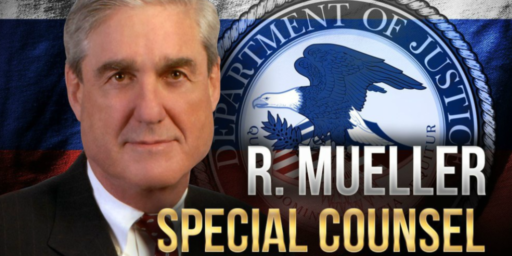
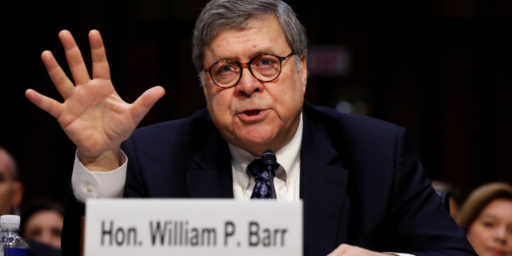
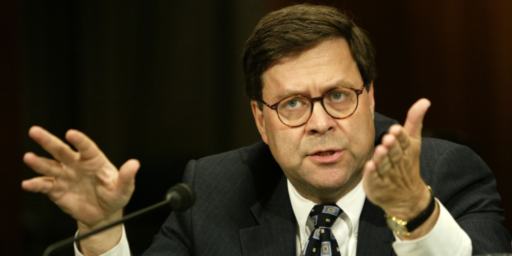
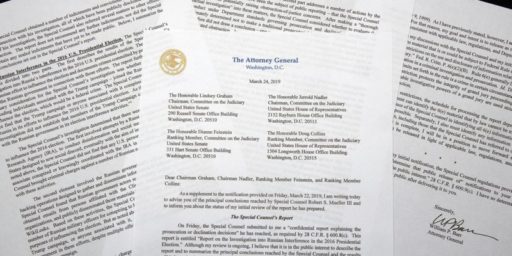
Glad to see Goldsmith said at least one thing I agree with.
I also agree that Barr’s actions and statements, although misleading, remain within the law, or at least arguably so. That’s what skilled lawyers do.
Goldsmith believes that Barr has released more than the law requires. Looks to me like he’s released as little as he thinks he can get away with, despite precedent that congress can have the unredacted report.
If the question is, “Should Trump be convicted of conspiracy or obstruction?”, the standard is guilt beyond reasonable doubt. If the question is, “Should Trump be president?”, what’s the applicable standard? Barr is succeeding in applying the criminal standard to the second question. And Goldsmith seems fine with that.
Dumping on Mueller for not making a prosecutorial decision, when Mueller’s bound by a DOJ policy that he cannot decide to prosecute, seems more than disingenuous. Especially so after denying originally that the policy had anything to do with the decision, despite Mueller’s clear statement in the report that it did. Now Barr is arguing that since he knew he couldn’t indict, Mueller should have declined to investigate. Could that really be the intent of the Special Prosecutor statute? Mueller’s reasoning was that since he couldn’t indict, thereby depriving Trump of a fair trial, he couldn’t accuse, so all he could do was lay out the evidence, then go a step beyond and explicitly state Trump was nor exonerated. Barr believes this is too Jesuitical to make sense to the voting public. He’s probably right. As long as they don’t say “guilty” the public will hear “innocent”.
Barr will oppose doing anything. Mueller apparently decided his hands are tied. It’s smelling like the Intel investigation won’t see any light of day. SDNY is investigating, but is also bound to not indict Trump, and they work for Barr. Don’t expect those other twelve cases to surface before the election.The State of NY may still come up with something, but it’s easy to kill eighteen months in our legal system. Starting impeachment eighteen months before the election, with Pence in the wings, and with an R Senate is pointless. (As is impeaching Barr). Also pointless is some House only motion of censure. What power does that remove from Trump? How many months in prison?
Vote Blue, no matter who.
Have to share the Toles cartoon.
Goldsmith is a respectable figure and I will have to read the whole piece. Still, I am struck that a lot of what was excerpted is as much a critique (some of which is nit-picky in my mind) or Mueller rather than a defense of Barr, per se.
Moreover, save for the bit about “collusion” it does not really get into the tone and language that Barr has used. I am not surprised, nor really upset, that Barr has proved to be a defender of the executive. I expected that. I hoped, however, that he would not be as obviously political in his language and approach. “No colllusion,” “spying,” “snitty,” etc. all sound more like a personal lawyer for Trump rather than the Attorney General of the United States.
So, a grubby little man has a theory. He strains every nerve to get hired by a president who is a criminal. Once in that position our grubby little man with a theory gets to put his theory into practice on behalf of a criminal and traitor. Which is pretty much what a defense lawyer does. And not what an Attorney General does.
Strong unitary executive theory fails for one rather obvious reason: we have vastly expanded the powers of the office, so that the modern presidency barely resembles the Founders’ intentions. To persist in pushing this clearly obsolete theory is to effectively promote an elected dictatorship. And that’s what our grubby little man fell all over himself to do.
Barr is a mediocre intellect who like so many mediocre intellects settled on an ideé fixe and stuck to it, clung to it, ignoring all the obvious arguments against it, and ignoring the damage to the country.
Then, in order to support his precious theory, Barr deliberately misled the American people, continues to stonewall the American people, and is therefore exactly the POS his critics say he is.
@Steven L. Taylor:
I concur. I’m not persuaded by Goldsmith that Barr was an honest broker. He does provide some useful context, however.
I don’t have much to comment on but wanted to say I appreciate you making this series of posts. In my experience, the Mueller Report is little more than a political Rorschach test for most observers, who use the Doug Feith method of analysis, but you are definitely an exception and are clearly taking a considered approach. Having not read the report myself, I generally agree with your take on it and Barr’s actions.
In the context of Barr’s support of a ‘unitary executive,’ which was the reason why Trump hired him, Barr’s rush to spin the Report to Trump’s favor weeks before release of the Report, and his subsequent evasive and disingenuous responses to the press and congress, skates awfully close to unethical behavior.
Goldsmith seems to dismiss all of this as an irrelevant distraction. I just don’t understand this coming from high level career legal counsel.
The House can speak to all of this by calling Robert Mueller to testify, to clarify all that his Report says, and if need be, draft articles of impeachment. Impeachment seems to be, in the world of Barr’s unitary executive, the only available remedy to addressing Trump’s reported obstruction of justice.
@al Ameda:..The House can speak to all of this by calling Robert Mueller to testify,..
Not if Supreme Leader Kim Jong Trump gets his way!
What a hack-everyone knows Barr lied. All the ramblings are a way to explain the lies, but they are lies nonetheless, from the AG. What a disgrace from Goldstein, I think anybody that even remotely associates themselves with the administration ends up soiling themselves. Never again will I read this hack. Let me be clear, as even Goldstein somewhat acknowledes- Barr was deceitful and dishonest.
@Andy:
Maybe if you read the report, it wouldn’t seem like a Rorschach test. It’s only 400 some odd pages, and it’s pretty gripping. Or even just skim it. Or the summaries for each section.
@al Ameda:
Graham’s willingness to have Mueller testify scares me. I fear he thinks some fix is in.
In any case, what’s Mueller going to say? What did you find? we reported what we found. Is it enough to indict the President*? We are bound by a DOJ rule that says we can’t indict a sitting president. Would the evidence be enough to indict anyone who wasn’t the president? I can’t say as that might make an accusation the President can’t respond to in court. Is there anything significant hidden by the redactions? I can’t say, the material is redacted. Did the Intel investigation turn up anything? It’s classified. Should the President be impeached? That’s not for me to say. Do you agree with Barr’s “summary”? Barr said we didn’t have enough evidence to indict, I said in the report that since we couldn’t indict we couldn’t accuse. So you had enough evidence to indict? We can’t indict.
If Mueller testifies, it’s going to be very frustrating and the general public is going to hear, “La la la la la.” With GOPs controlling the Senate there’s not much point to impeaching. Pelosi’s doing all we realistically can do, investigate and try to get the supposedly liberal MSM to report on Trump’s malfeasance. And follow Biden’s lead, help Trump beclown himself.
@gVOR08:
I happen to think that Mueller will say something like; ‘Congress has a Constitutional remedy, it’s impeachment.’
The report was oblique on obstruction, but he pointed to what many prosecutors see as obstruction. I think Mueller was hemmed in by the narrow parameters of his charge to investigate, and later by Barr, who presided over the suspiciously rapid end to this investigation. Barr was hired to close this out and he did.
Having a bad two years, people? Maybe you need more plastic chickens.
@Raoul:
He reminds me of Dershowitz here. I don’t think he even believes what he’s saying, he’s engaging in a lawyer’s exercise in finding the least implausible, letter-of-the-law interpretation to make a case for what everyone knows ain’t so.
@al Ameda:
My suspicion as well. Furthermore, (believing that Mueller is a “straight-shooter”) I am also suspicious of the rationale to not live-question the principle subject of the investigation. The ‘too much time and effort’ explanation just doesn’t do it for me.
@Kylopod:
That is not at all Goldsmith’s track record.
“Collusion”, as we are constantly reminded, is not a legal term of art and is not well defined. GOPs are succeeding in defining it exclusively. They’ve moved the goalposts to nothing short of a recorded agreement between Trump and Putin personally to throw the election. But the investigation was chartered to look into cooperation between the campaign, not just Trumpsky, the campaign, and Russia. We get to play the same game and define “collusion” inclusively. “Whaddaya mean no collusion. Papadopolous (sp?), while working for the campaign, knew the Russians had dirt on Hillary and were going to use it. You don’t call that collusion?! Manafort was up to his eyeballs in Russians and everybody knew it. And Trump made him campaign chairman. You don’t call that collusion? And we know he gave the Russians confidential campaign data. You don’t call that collusion? And what about Roger Stone?”